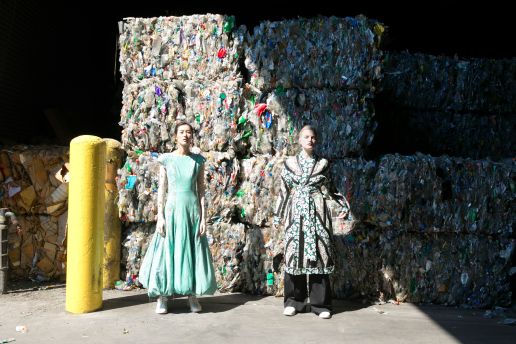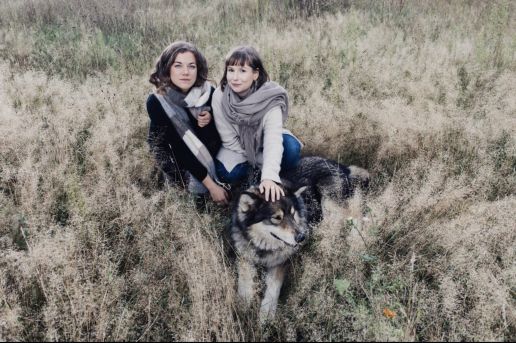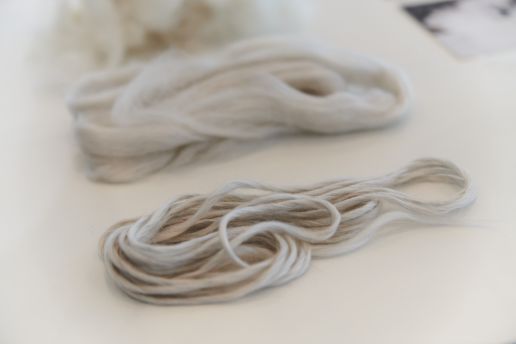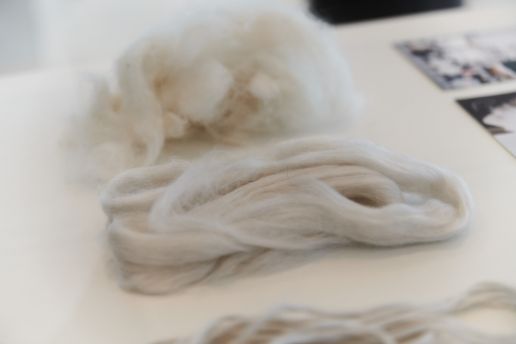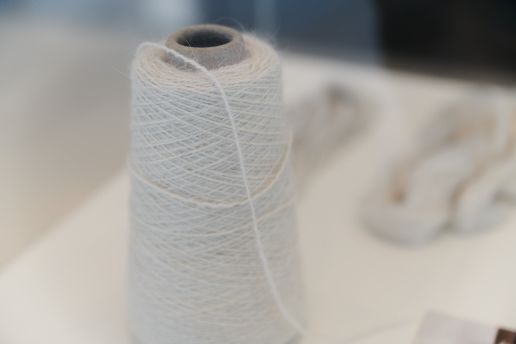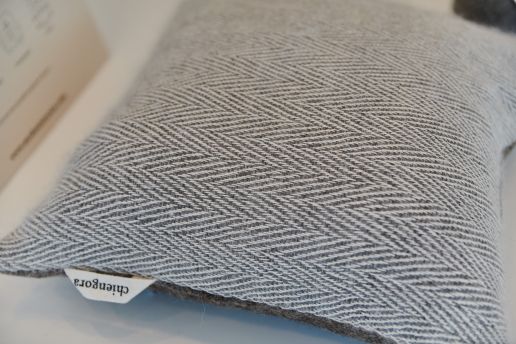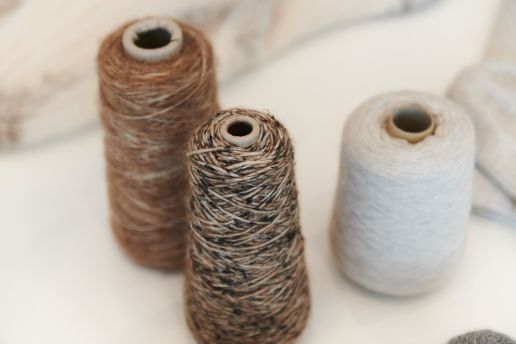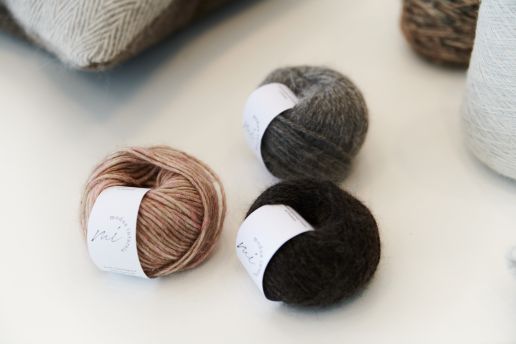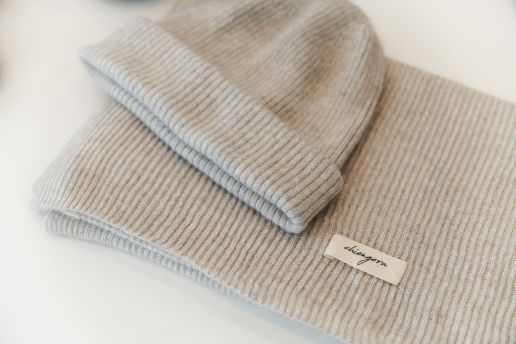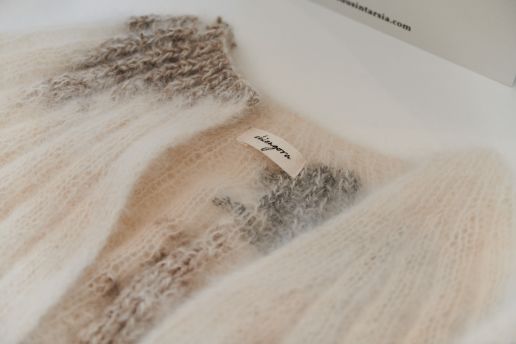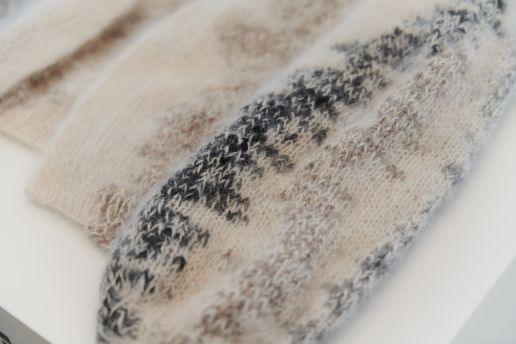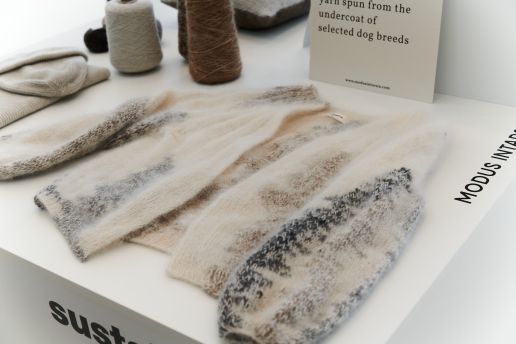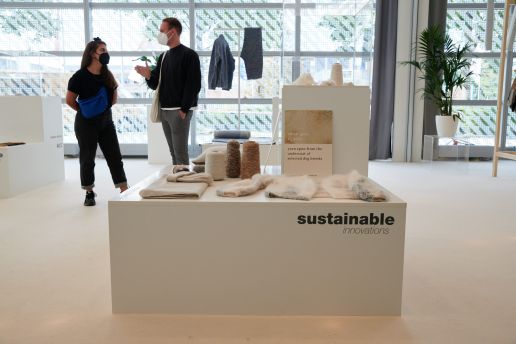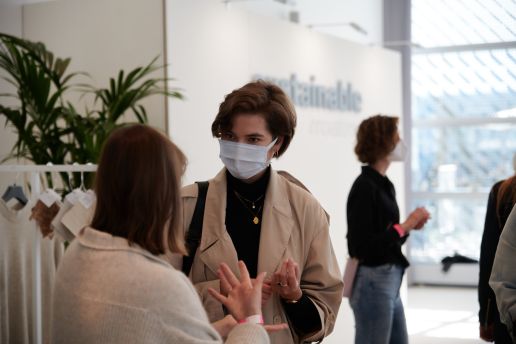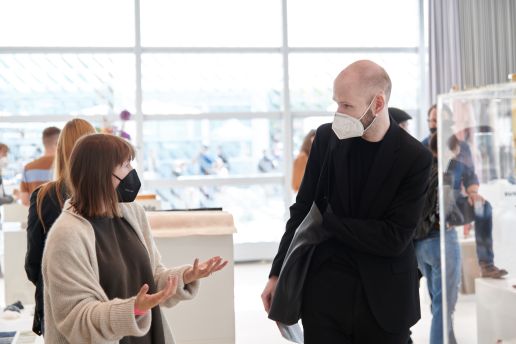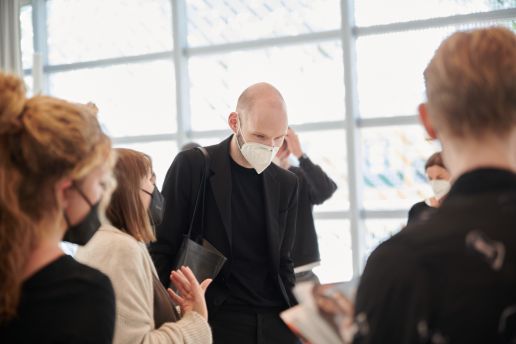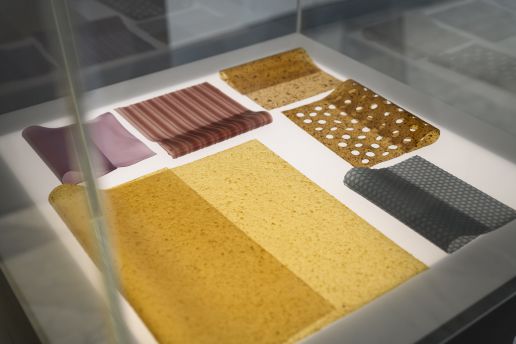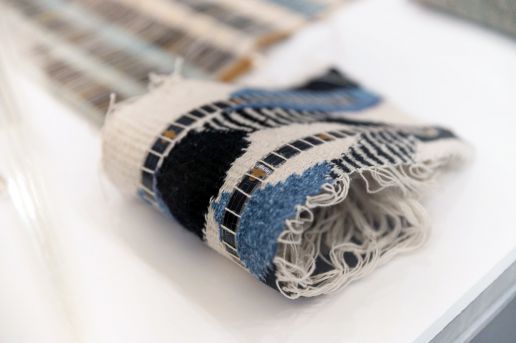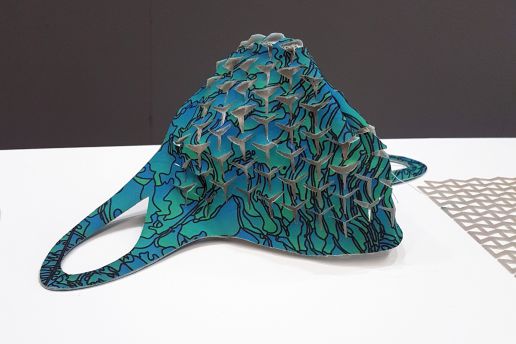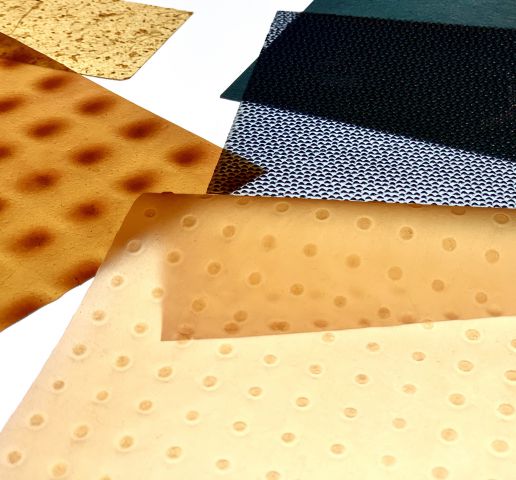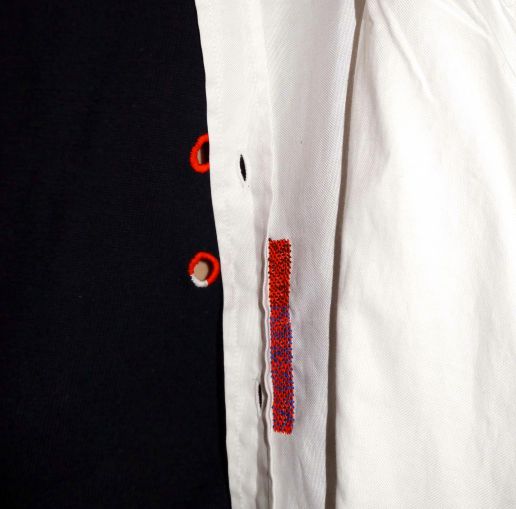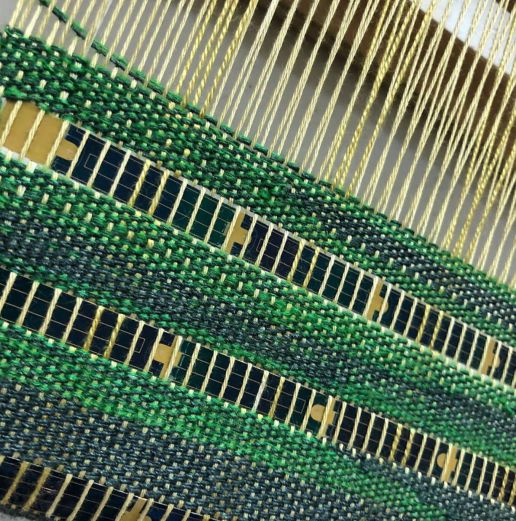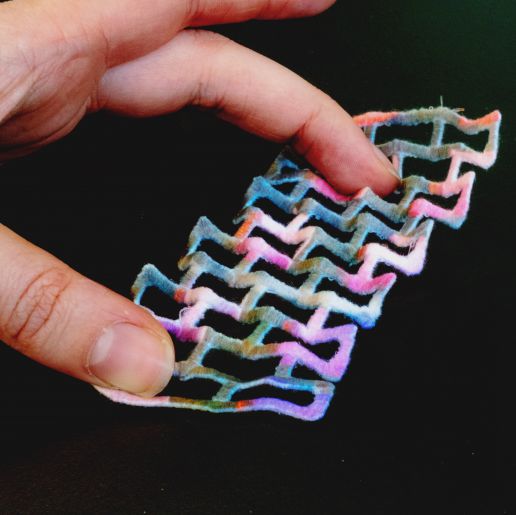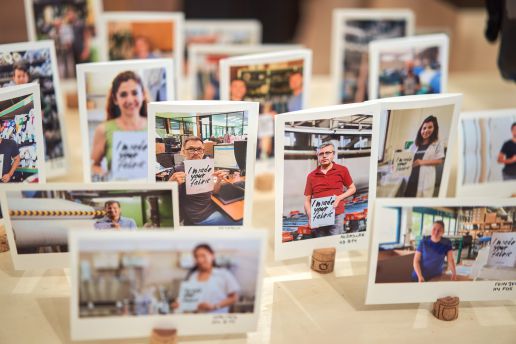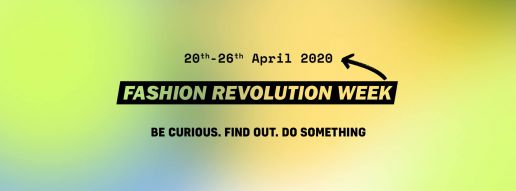Sustainability
The New Textiles Economy
The New Textiles Economy, A Catalyst for Transformation?
AN INDUSTRY INSIGHT BY FASHNERD FOUNDER MUCHANETA KAPFUNDE.
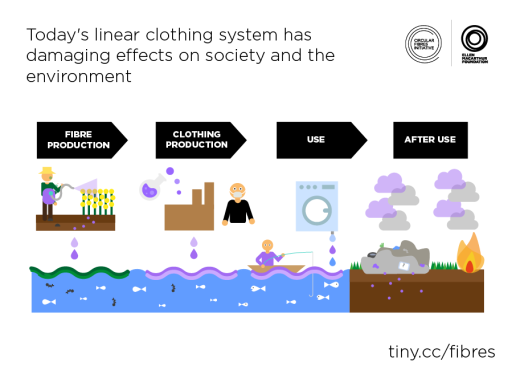
Although textile businesses play a fundamental part in the global economy, future-proofing this somewhat rigid industry with new technologies is no small feat. The good news is that cutting-edge innovations now have more authority than ever before. No longer labelled as gimmicky, these actionable tech solutions represent a real-life potential to change the textile world’s processes, materials, and techniques for the better. Which brings us to the question, how can one become an active shaper in the new textiles economy?
A New Mindset Speeds up Implementation
With the pandemic still dictating how we do business, new technologies have become unlikely superheroes. Bringing about a new mindset to the fashion and textile industry, new innovations have been encouraging companies to seize the opportunity to shift their trajectory towards a new textiles economy. But what is the new textiles economy?
Driving positive change during these challenging times, the new textile economy promises long-term benefits built on the reuse, remake, and recycle models. Based on circular economy principles, Ellen MacArthur Foundation’s paper called ‘A new textiles economy: Redesigning Fashion’s Future’, defines the new textile economy as “regenerative and restorative”. Designed to “phase out the use of non-renewable resources”, the new textiles economy can minimise the adverse impact by significantly reducing resource usage during the production, while in use, and after-use phases.
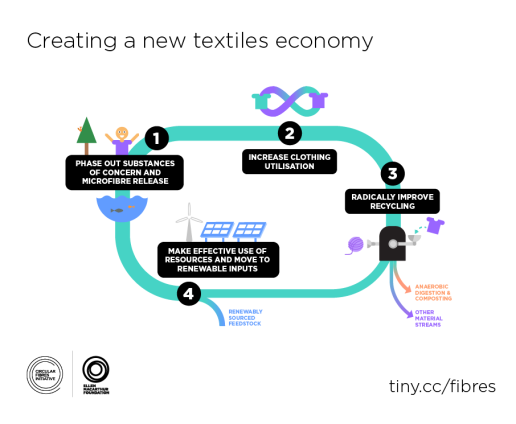
An excellent example of a company speeding up implementation with a new mindset is Nike. Committed to phasing out non-renewable resources, Nike adopted the ‘Rewire’ approach, which is a supply-chain strategy based on “integration, incentives, and innovation”. It was a change that helped Nike propel sustainability to the forefront of their business strategy.
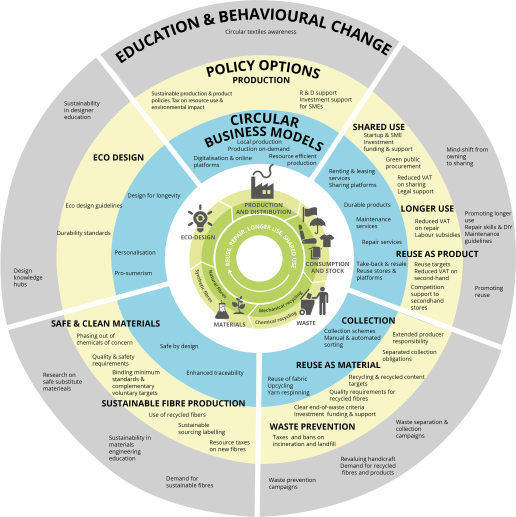
A Shared Vision Sets New Industry Standards
As the new textiles economy ushers in a different system level, a shared vision is emerging. Encouraging rapid acceleration within the textiles industry, the shared vision represents an opportunity for textile businesses to commit to disruptive partnerships that enable a more effective system-wide progress. Collaborations have not only been playing a vital role in stimulating strategies, but they have also made it possible for textile businesses to test new models at scale.
Setting new industry standards are companies like Reverse Resources. Described as the Uber of textile waste, Reverse Resources is a tracking and trading platform for textile waste that brings manufacturers and buyers together. Providing 360-degree transparency of the waste flows, Reverse Resources is one of many innovative companies taking critical action in supporting the new textiles economy by being an active shaper bringing about a systemic fix that supports structural change.
A Catalyst for Transformation?
Is the new textiles economy a catalyst for transformation? The answer is yes. The transformation of the textile industry is steering businesses towards a new textiles economy that is economically and environmentally better for everyone. Built on a shared vision and fueled by new technologies, the new textiles economy is excitingly ushering in a long-overdue evolutionary change of the linear system, which has been ripe for disruption for a very long time.
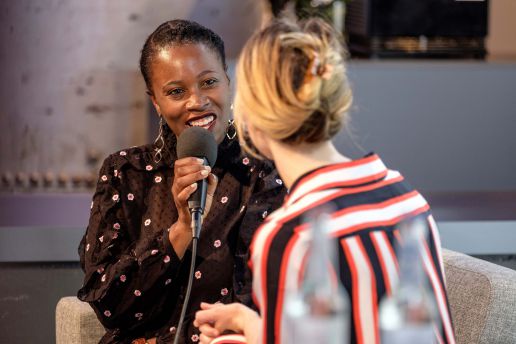
ABOUT THE AUTHOR
Founding editor-in-chief of FashNerd.com, Muchaneta has worked in the fashion industry for over 14 years. She is currently one of the leading influencers speaking and writing about the merger of fashion with technology and wearable technology.
Muchaneta Kapfunde | editor@fashnerd.com
Chiengora instead of Angora
Yarnsustain by Ann Cathrin Schönrock & Franziska Uhl
Often, solutions for ethical and sustainable are not used, even when they are the most obvious one. Fashion and knitwear designer Ann Cathrin Schönrock and textile engineer Franziska Uhl have searched the market in vain for sustainable and at the same time high-quality yarns which led the duo to get creative themselves: They founded the company Yarnsustain to revolutionise the fashion and textile industry with yarns and fabrics made from dog hair.
“The wool industry currently imports high-quality fibers from around the world, while the source is often walking directly in front of our faces. With us making this resource available to the textile industry, we are able to correct this systemic error. Pet-based high quality wool enables everyone out there to contribute to a better textile future.“
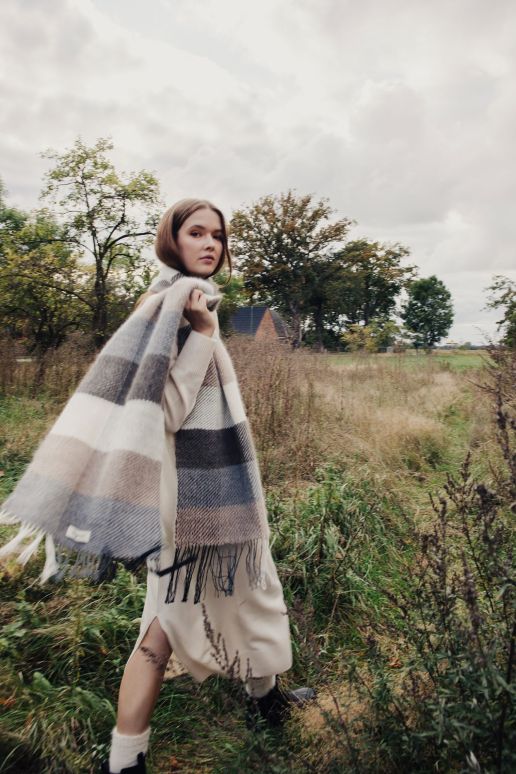
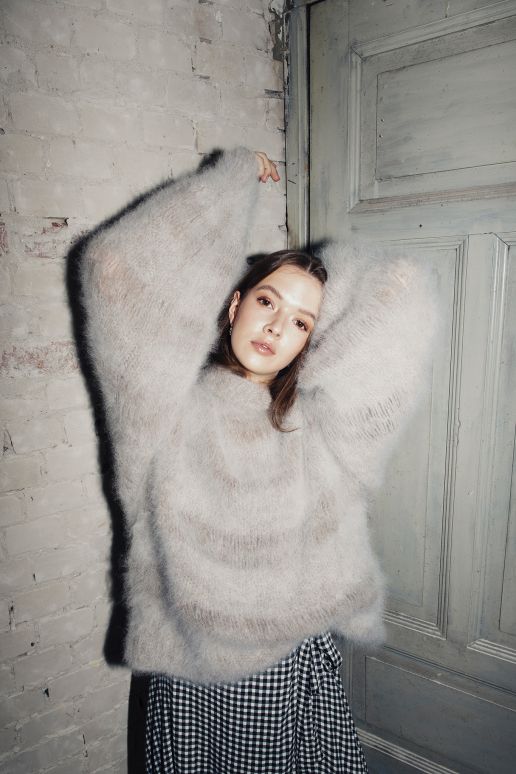
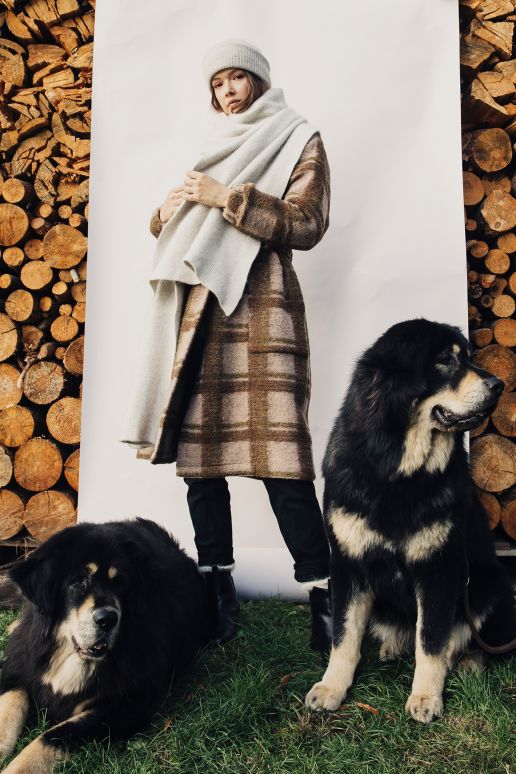
Back in 2017, Ann Cathrin Schönrock, who is a dog owner herself, started working with her dog’s wool – because why shouldn’t this material, which is actually considered waste, also be used for clothing or to fill home textiles? Together with her co-founder Franziska Uhl, she developed the high-quality Chiengora®, a yarn made from the undercoat of long-haired dogs. Support by funds from the German government, the organisation was able to collect more than two tonnes of undercoat this year alone and process it into yarn.
Behind the company are the NGO Saving Lost Resources e.V., Yarnsustain and the brand company modus intarsia. In this triad, the founders contribute to animal welfare, produce high-quality yarns and sell garments made from dog hair – to further promote consumer acceptance and establish garments made from dog hair on the market.
C&A opens sustainable production site in Mönchengladbach
Fashion retailer C&A has announced the opening of its Factory for Innovation in Textiles (“C&A’s FIT”) in Mönchengladbach, Germany, set for autumn 2021. The state-of-the-art production site will initially focus on manufacturing jeans using the latest digital technologies in a carbon-neutral production site. We got exclusive insights into the automation of C&A’s FIT and can’t wait to share it with you!
The German fashion company is working with scientists from Niederrhein University of Applied Sciences, the North Rhine-Westphalia Textile Academy and RWTH Aachen University, as well as pioneering start-up companies, on the new development.
FIT will first focus on the production of jeans. The ambitious plan is to initially produce around 400,000 jeans per year in Mönchengladbach, and later it will be 800,000. The first jeans will be available in stores in 2022.
With this opening, C&A is generating new impulses for the textile industry in the middle of Europe. Besides, it makes the bold statement that sustainable fashion must not be a niche product – which is why this manufacturing site is about production in larger numbers.
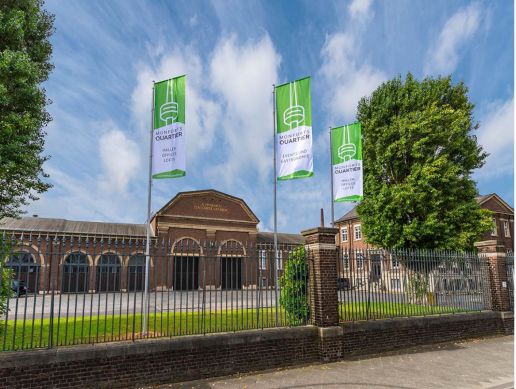
Betty Kieß, Head of Corporate Communications Europe C&A, exclusively shares with us some examples of automation used at C&A’s FIT:
- Fully automated pocket setter: A machine that automatically folds and sews the back pocket while the employee only inserts the fabrics.
- Automatic magazine: In the area of warehousing of raw materials, a magazine which automatically stores the materials and returns them to production when required is used. All materials are also digitally inventoried.
- Industry 4.0: All machines are designed for Industry 4.0 and can communicate production data with one another.
- Decorative stitch carousel: The decorative seam is automatically sewn onto the back pocket by a stitch carousel.
Betty Kieß also tells us that they are working closely with the universities in the field of robotics with the goal of eventually using robots to feed parts into the production.
…definitely exciting news coming soon!
As a long-standing visitor to MUNICH FABRIC START and BLUEZONE, C&A will of course be back in Munich in autumn to view and order the collections and innovations of our international exhibitors – we can hardly wait to greet our visitors and exhibitors again at our physical fair under the motto RISE allowed to!
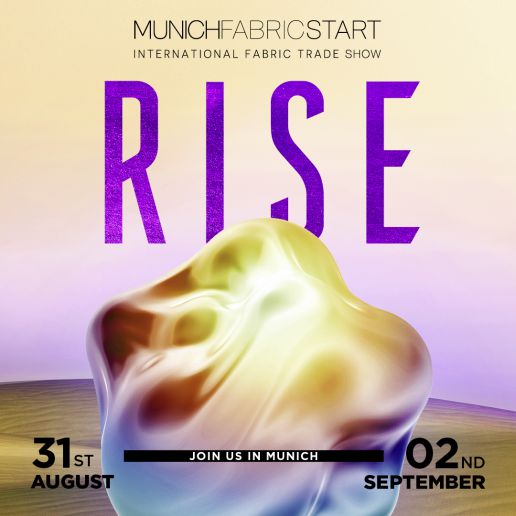
MUNICH FABRIC START
31/08 – 02/09/2021
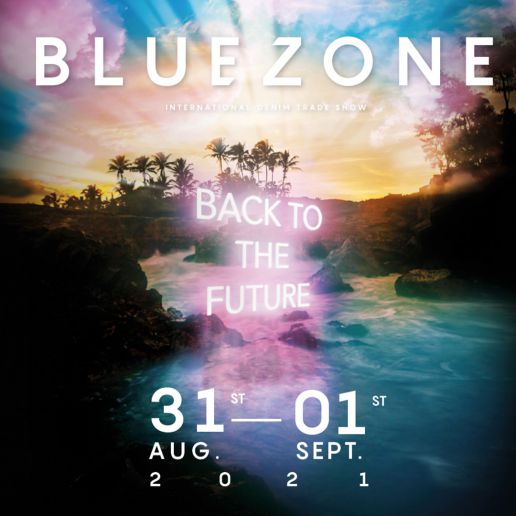
BLUEZONE
31/08 – 01/09/2021
From Trash to Treasure by Youyang Song
Dutchman Simon Angel has found a talented designer whose innovation makes it possible to create textiles from recycled bioplastics. The curator of SUSTAINABLE INNOVATIONS presented these and three other developments during the FABRIC DAYS.
„More and more, we are moving towards an era of adhocracy. Transferring this into the material and textile world: Materiality and comfort will experience a comeback”, explains Simon Angle in our interview with him.
An example of this is presented here as part of the SUSTAINABLE INNOVATIONS:
FROM TRASH TO TREASURE BY YOUYANG SONG
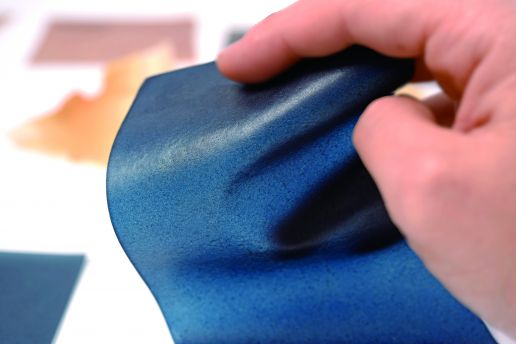
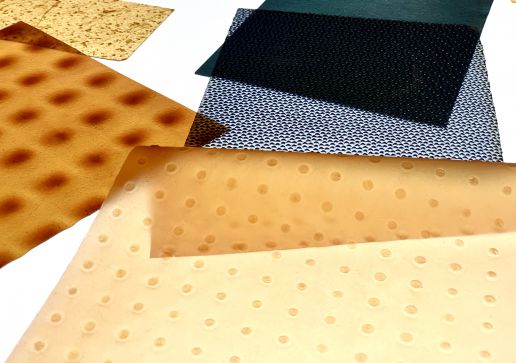
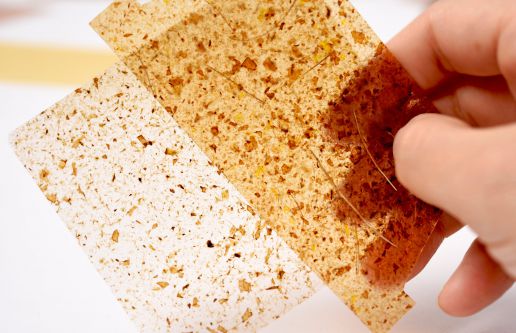
How can innovative products be created without using new resources? How can we stop growing mountains of waste? Use the old to create the new: The designer and materials researcher Youyang Song has set herself the goal of helping to develop an ecosystem consisting of purely biodegradable materials. Handbags made of banana peel, lampshades made of soy milk – the designer processes organic waste into new recyclable materials. This results in products that can be returned to the natural cycle at the end of the product life cycle.
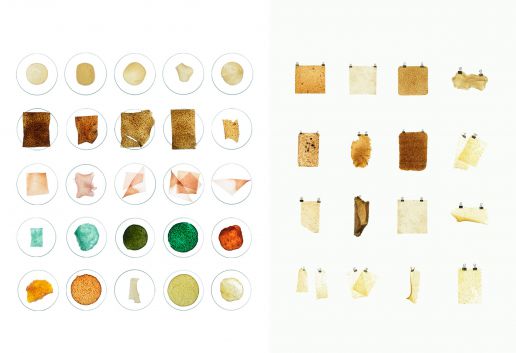
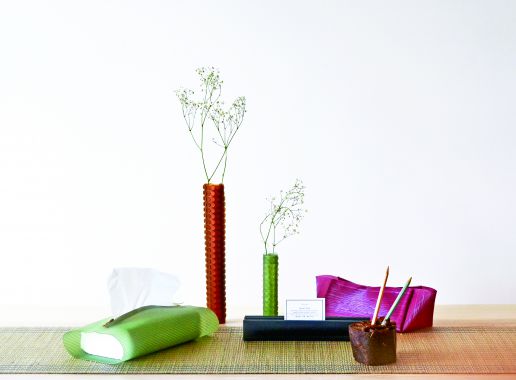
„Our goal is to establish a circular economy regarding the materials and follow the sustainable development guidelines to create our products.“
Youyang Song
Song has developed the “Cooking new materials” technique, in which fruit peels or soy milk are mixed with a natural binding agent. “APeel” is the name of the soft, innovative material created by this process. The natural product is also waterproof and robust like real leather, smells fruity, has a natural texture and is completely biodegradable. Protecting the environment in style: With her project, Song wants to show that environmentally friendly products can be not only practical, but also aesthetic and stylish.
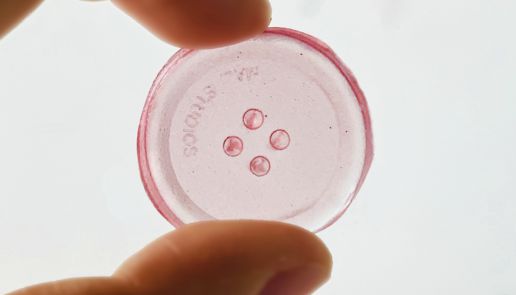
Perfect Imperfection by Studio Mend
FABRIC DAYS presented futuristic innovations of international manufacturers. Besides, Sustainable Innovations curator Simon Angel introduced innovative developments of young designers in the SUSTAINABLE INNOVATIONS forum.
“Rethinking old traditions and adding a contemporary note to them can create innovation – sometimes you don’t have to come up with something entirely new to be innovative”, states Simon Angle in our interview with him.
An example of this “traditional innovation” is:
PERFECT IMPERFECTION BY STUDIO MEND
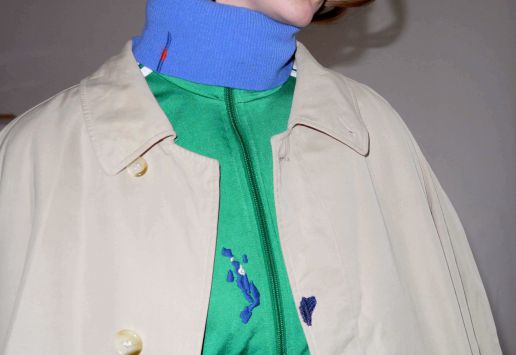
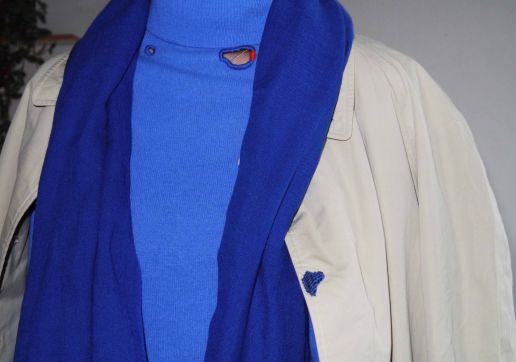
A new pair of jeans for 29,99€, a t-shirt for 7,99€. Constantly changing trends, synthetic fabrics and inferior quality: Since fast fashion conquered the world in the 1960’s, new clothes are available everywhere and at all times. What is broken is thrown away and what is no longer in fashion lies unused in the cupboard. More than two million tonnes of textile waste are generated annually in the European Union alone. When did our relationship to clothing change in such a way? This question was asked by the young fashion designer Sunniva Amber Flesland. She founded Studio Mend in 2019 to bring back the emotional and material value of what we wear.
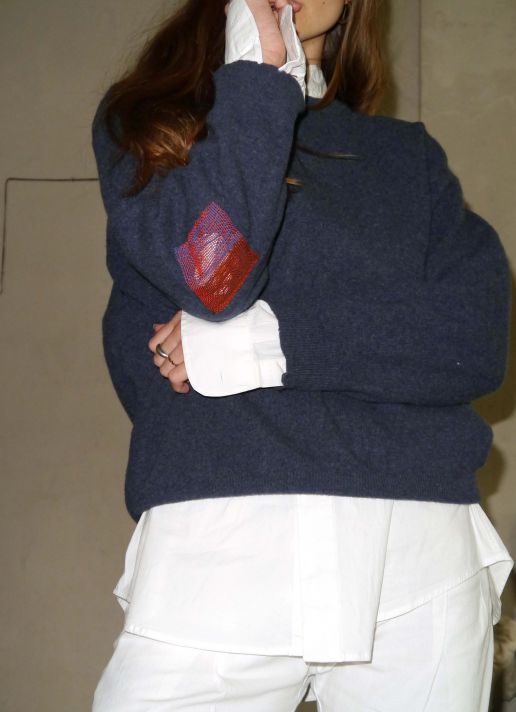
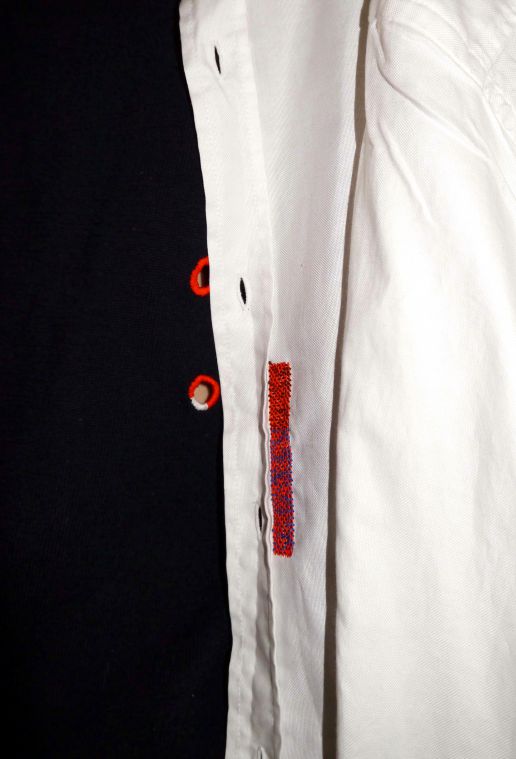
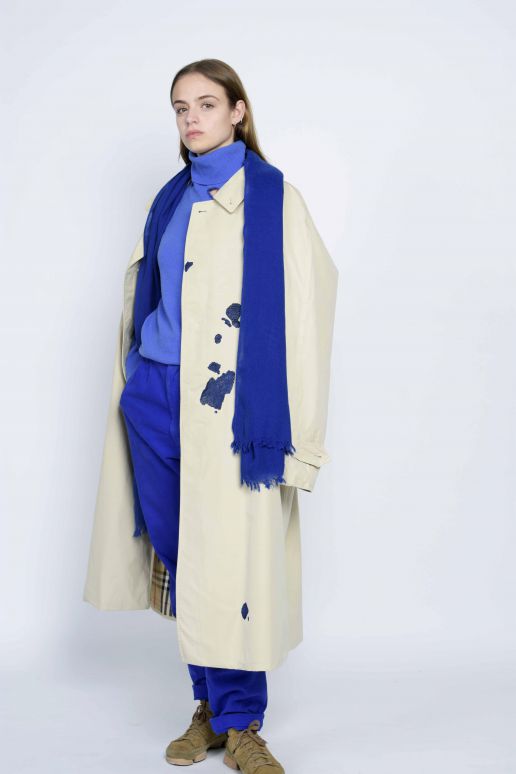
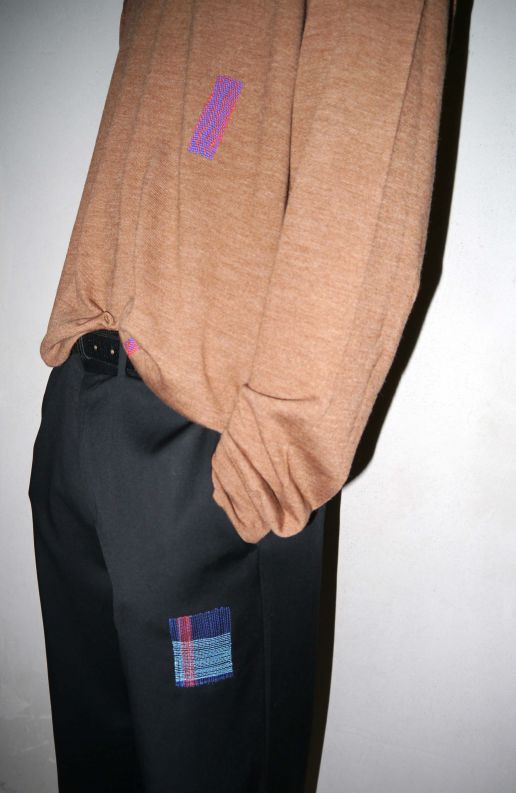
“I am excited by raw material, old crafts and traditions, beauty, and looking for potential where it’s not easily seen.”
Sunniva Amber Flesland
Appreciate, repair, refine: At Studio Mend, traces of wear and tear from through the lifespan of the garments are repaired in a very special way. Island Weave, Edge Mend, Pinstripe Patch, Crossover Stitch: The customer can choose between these four carefully developed technical styles to make his or her damaged favourite piece whole again. In combination with individual colour designs, valued and unique pieces are created. The acceptance of transience and imperfection – this is the basic principle of the Japanese philosophy Wabi Sabi, which served as inspiration for Flesland. Instead of hiding faults, they are celebrated as signs of an eventful life. Visibly and ingeniously, the artist creates valuable, aesthetic and unique pieces as a statement for a better fashion world.

Solar Self by Pauline van Dongen
SUSTAINABLE INNOVATIONS Autumn.Winter 21/22 #2
Every season, Simon Angel is searching for the four most futuristic SUSTAINABLE INNOVATIONS.
These four sustainable developments have been presented at FABRIC DAYS – one of them being this textile innovation that combines technology and fashion in a unique way:
SOLAR SELF by PAULINE VAN DONGEN
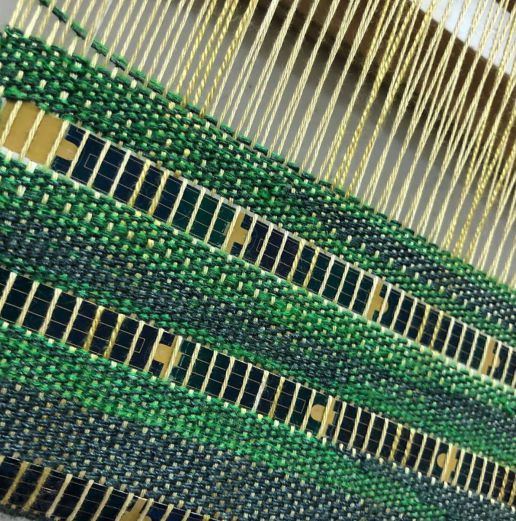
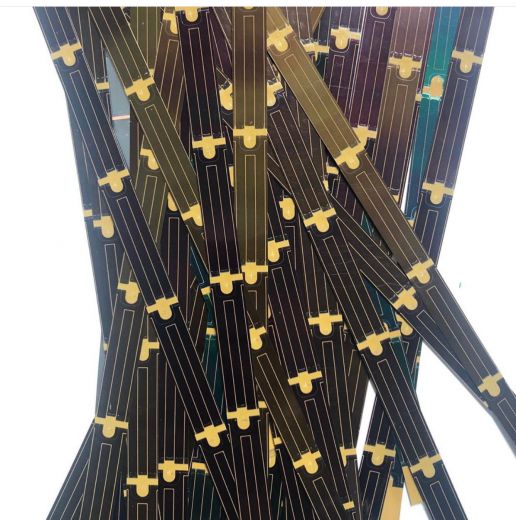
A dress to recharge your smartphone? What sounds like utopia is already tangible reality. For their project “Zonnestof” (“Sun Dust”), Pauline Van Dongen and Maaike Gottschal have developed a woven textile with thin, flexible solar cells, thus creating new aesthetic qualities and material properties. A play on colour, texture and transparency: By combining the solar cells with different yarns and various weaving patterns and techniques, a wide range of textiles can be produced.
“The creative process invites people to participate, to explore their dreams and wishes as well as to show what role solar energy can play in their daily lives. All participants become owners of the project through their contribution and thus part of a larger movement.”
Pauline van Dongen
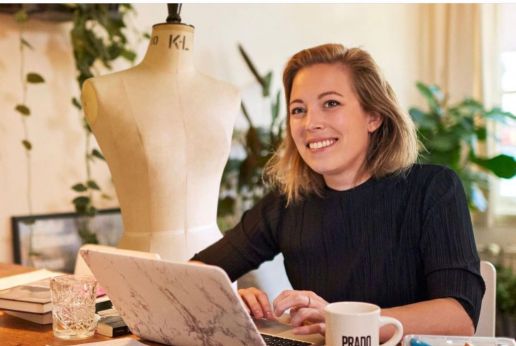
But the Dutch fashion designers and researchers are not only interested in embedding technology in fashion. The initiators of the project are much more interested in the social experience of working with solar fabrics and wearing technology on the body. In workshops, the project invites the participants to create their own piece of “solar design” and weave a sustainable future. Instead of seeing nature and technology as opponents, Van Dongen and Gottschal want to make technology something that goes without saying. And it is not only fashion that can gain unprecedented added value from solar fabric: The textile can also be used in architecture or interior design, for new transport concepts and in public spaces as well as for events and festivals.
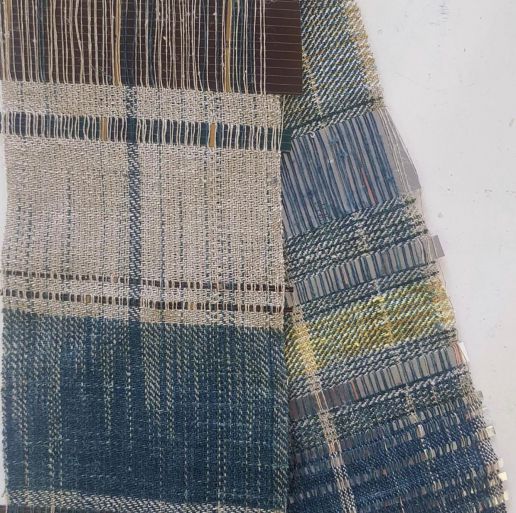
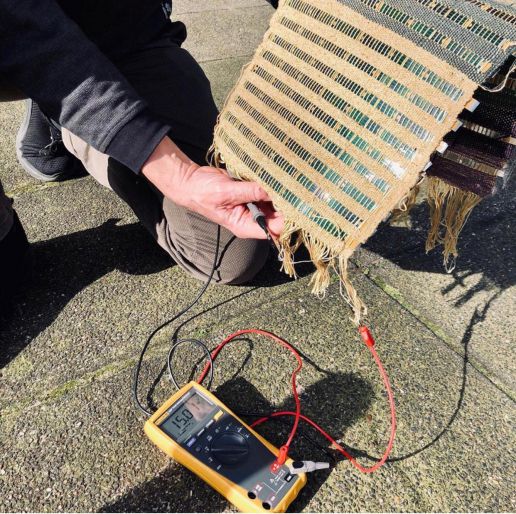
Living Material by Iris Bekkers
SUSTAINABLE INNOVATION Autumn.Winter 21/22 #1
SUSTAINABLE INNOVATIONS curator Simon Angel presented four developments for the season Autumn.Winter 21/22 at FABRIC DAYS at the beginning of September. The Dutchman is always on the search for interesting young designers, outstanding innovations and the latest novelties in the textile world.
In our latest interview with him, he stated: “With the Sustainable Innovation forum, we present the near future and showcase what already is possible.”
Let us now present you the first of this season’s SUSTAINABLE DEVELOPMENTS:
LIVING MATERIAL BY IRIS BEKKERS

Doesn’t fit anymore, doesn’t fit properly: Many of our favourite pieces of clothing lose their shape after a short time and are shipped directly to the nearest garbage dump. Textiles that adapt to individual body shapes and external conditions could reform the fashion and textile industry.
To create such textiles, product designer Iris Bekkers uses auxetic materials in her project “Moving Structures”, i.e. stretchable materials that can adapt their structure to their surroundings. As part of her final project at Eindhoven University of Technology, she has developed a special face mask that not only adapts to different face shapes, but also adapts its filter function to the environment and is very breathable.
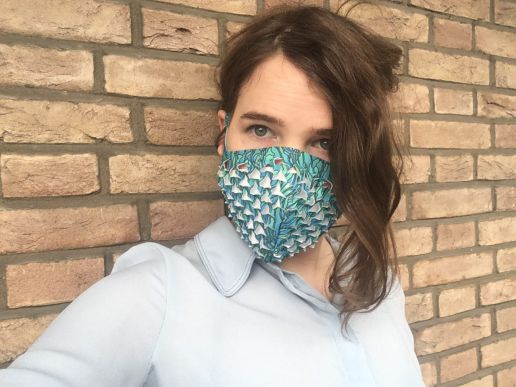
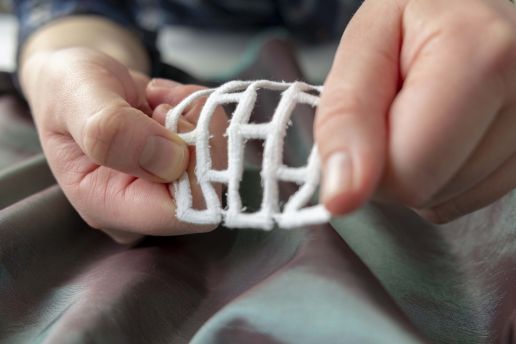
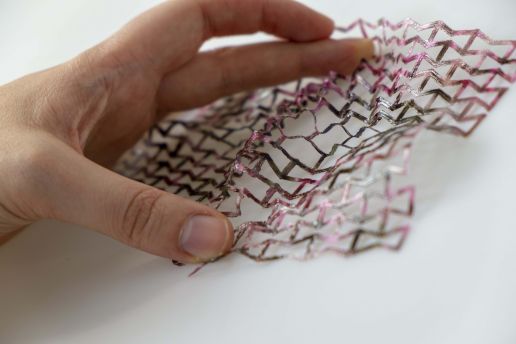
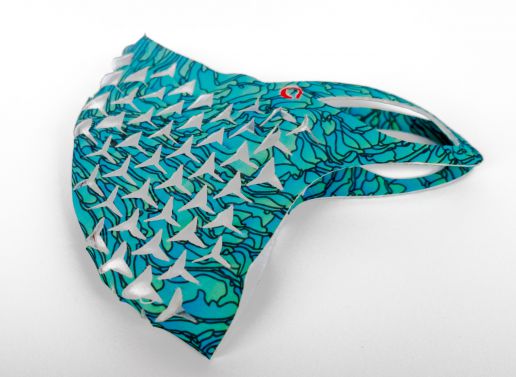
More comfort, longer wearing time, less waste: Due to their geometric structures, auxetic materials become thicker when stretched, rather than thinner like most fabrics. The potential of such fabrics ranges from jackets that adapt to the seasons and can therefore be worn in summer and winter, to shoes that change their flexibility and stability as required. Bringing the material to life: For her designs, Iris Bekkers not only thinks about the material and its texture, but also about the context in which the fabrics are used and enjoyed. Only in this way can her designs combine man and nature.
“The auxetic samples are the start and inspiration for a range of products that can adapt and transform themselves, functioning optimally in different circumstances. The potential for adaptability results in more value, more function and a reduction in the quantity of materials and products necessary.”
Iris Bekkers
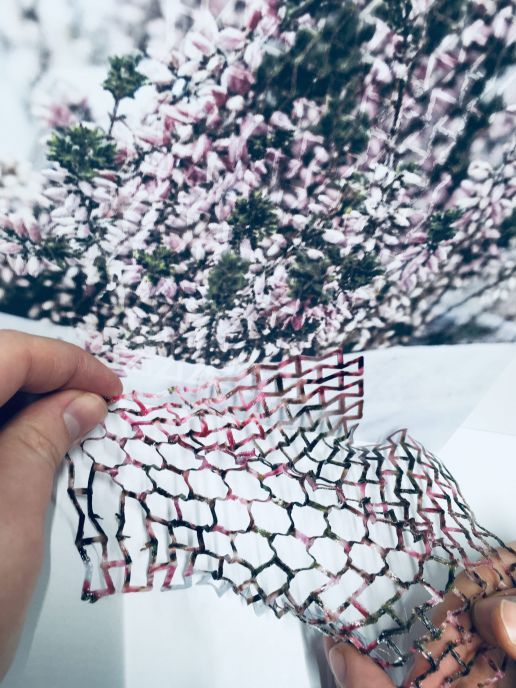
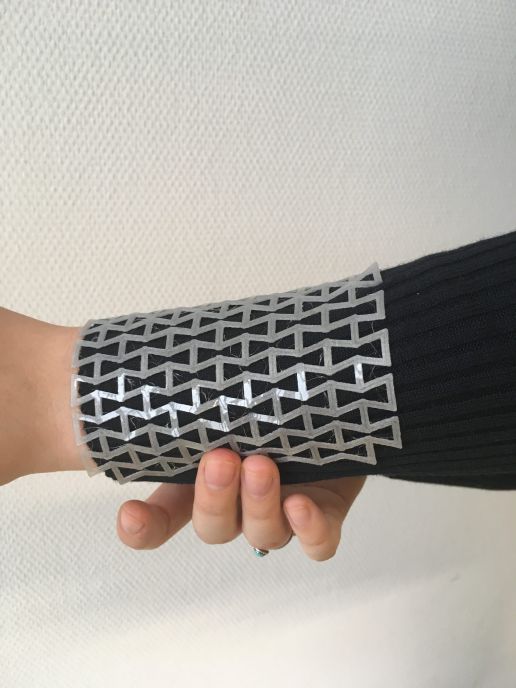
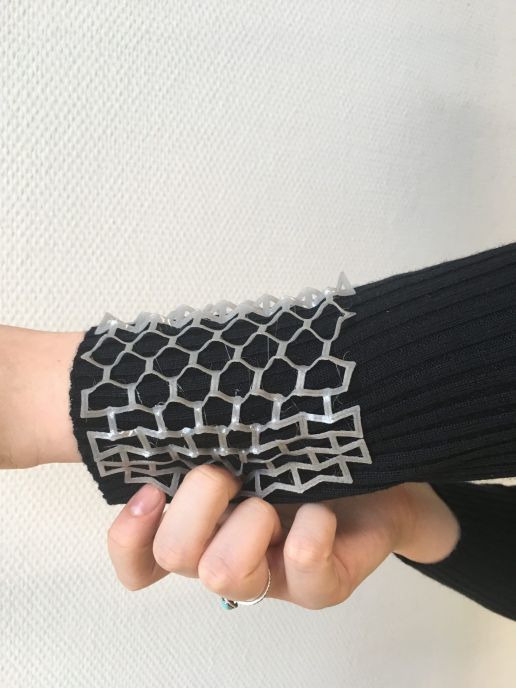
SUSTAINABLE INNOVATIONS, Big Changes & New Challenges
An interview with SUSTAINABLE INNOVATIONS curator Simon Angel – the Dutchman who is always on the search for interesting young designers, outstanding innovations and the latest novelties in the textile world. You will find Simon and the four SUSTAINABLE INNOVATIONS he chose this season in the foyer of hall 4 at FABRIC DAYS.
- Simon, what new innovations can we expect this season?
Rethinking old traditions and adding a contemporary note to them can create innovation – sometimes you don’t have to come up with something entirely new to be innovative. This edition ‘the new thing’ is referring to something old like weaving, repairing and recycling. For example, weaving with solar-panels from Pauline van Dongen, repairing as value-creation from Studio Mend or value adding applications by Auxetics and industry ready, recycled bioplastic fabrics by Studio YouYang. All these projects use traditional crafts and materials, but in a new and innovative way.
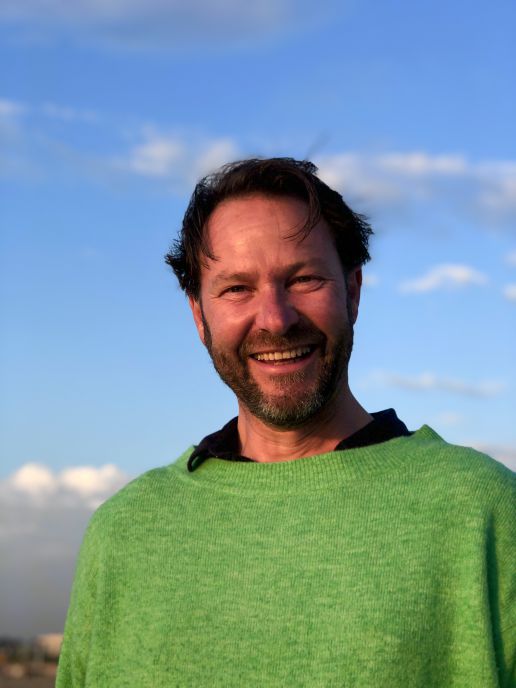
2. In 2020, the Corona pandemic brought the world to an unscheduled stop. But the crisis has also sped up the movement towards a more sustainable lifestyle. How will this shape innovation?
As you know, I’m an optimist. This year’s developments actually encouraged change. How you look at things makes a big difference in order to get yourself in the right inspired mode. Pandemics or heatwaves are nature’s way of confronting us. Just like we are experiencing changes in our environment, the nature experienced changed by humans for years and is now responding to us. All this is leading us to a dialogue with nature – a much needed one. Bit by bit we realise we exist as part of nature. Designers, scientists, the industry and consumers change their habits and question old methods. Finally, most of us start to realise what is necessary to ultimately save our world. We can only achieve that, when we are searching to find the balance with ourselves and with nature.
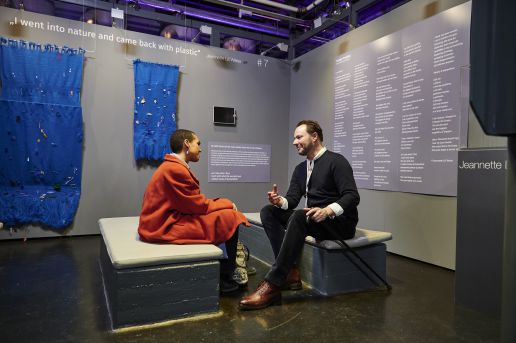
- It is the sixth time that you are curating the SUSTAINABLE INNOVATIONS. How has this year’s edition been different?
The responses to sustainable innovations are new. The dialogue is getting serious. For example, have a look at the location of the Sustainable Innovations forum this year: It has moved from the Keyhouse to the main hall, right in the heart of the industry. Right at the spot where the big changes happen.
- This year’s innovations are all about the material: textiles created out of biowaste fabrics, adapting its shape to the environment – can you give us a glimpse into the material of the future?
With the Sustainable Innovation forum, we present the near future and showcase what already is possible. As you can see, this future finds its inspiration in old traditions, crafts and resources. But what comes after that? It is hard to predict as the world is losing its linearity as we know it. More and more, we are moving towards an era of adhocracy. Transferring this into the material and textile world: design and shapes will not be the main focus of designers anymore. Materiality and comfort will experience a comeback – and we will have to redefine the product development process and all that entails. We have to open our minds and let go of expectations. We have to source from our universal knowledge to create something that in this form has never been there before.
- How can we see the current situation as an opportunity to innovate, rather than for all the challenges it presents?
This situation shows on a holistic level, that humans have to develop themselves and challenge the Status quo. Enjoy the experience as it opens up new horizons which we could never have dreamt of. Look at the Munich Fabric Start, with the Fabric Days they showed how to deal with unforeseen obstacles and ever changing circumstances – a pretty good demonstration of a future recipe for attitude, mental shift and permanent dialogue. So yes, let’s see every day as a chance for a better tomorrow.
Learn more about Simon’s sustainable novelties for the season Autumn.Winter 21/22 during the three days of FABRIC DAYS from 1 – 3 September 2020 at MOC Munich.
FABRIC DAYS AUTUMN.WINTER 21/22
OPENING HOURS
1 SEPTEMBER 2020 · 9.30 AM – 6.30 PM
2 SEPTEMBER 2020 · 9.30 AM – 6.30 PM
3 SEPTEMBER 2020 · 9.30 AM – 4.00 PM
LOCATION
MOC Munich | Halls 1 – 4 Ground Floor
Lilienthalallee 40
D – 80939 Munich
Understanding Sustainable Manufacturing: Our Icon System
UNDERSTANDING SUSTAINABLE MANUFACTURING: OUR ICON SYSTEM
Introduced for the first time at the latest edition of Munich Fabric Start in February 2020, our icon guidance system became a welcomed and essential tool for the professionals visiting our trend forums. Saving time and streamlining the search process, our guidance system has been developed to accompany trend forum fabrics, trims and products to quickly and clearly communicate sustainable properties and technical functions. The response to this system has been hugely positive, based on feedback received at the show.
Take a look at the system in action at our trend forums:
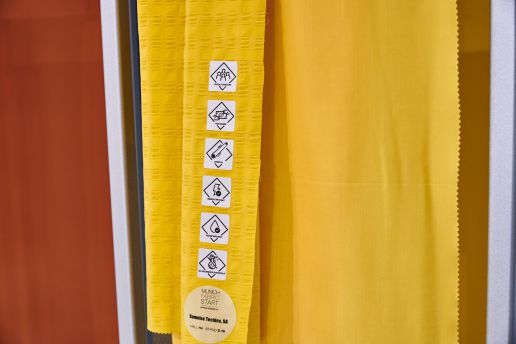
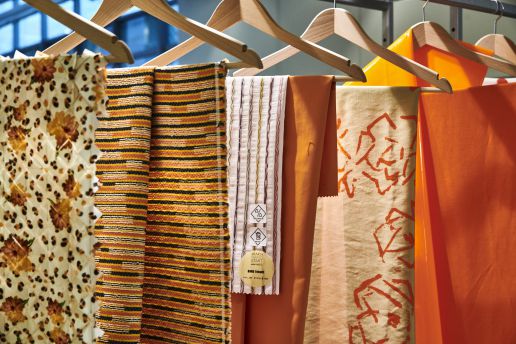
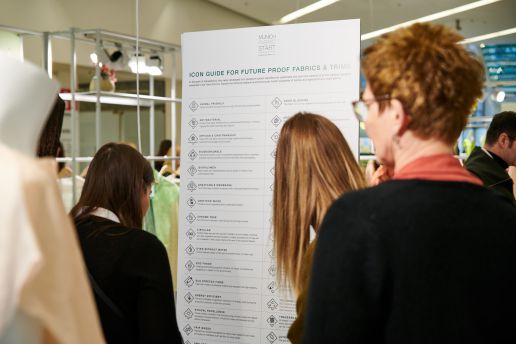
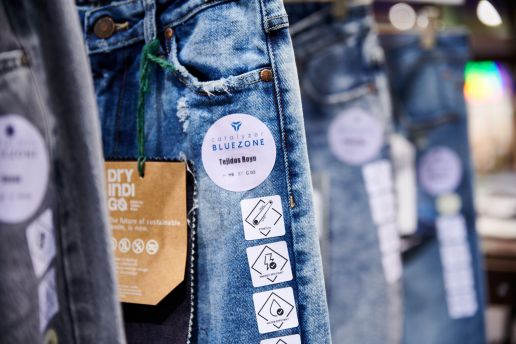
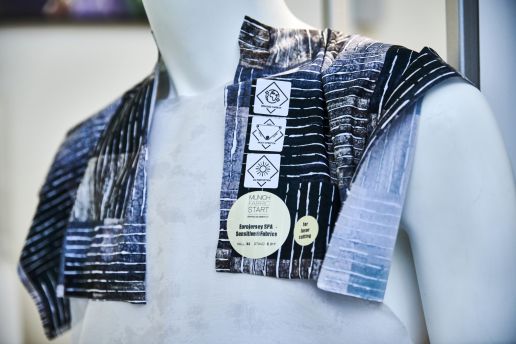
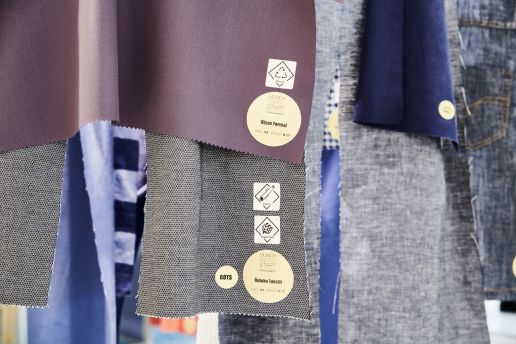
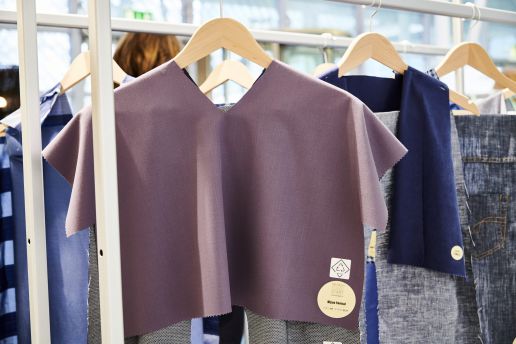
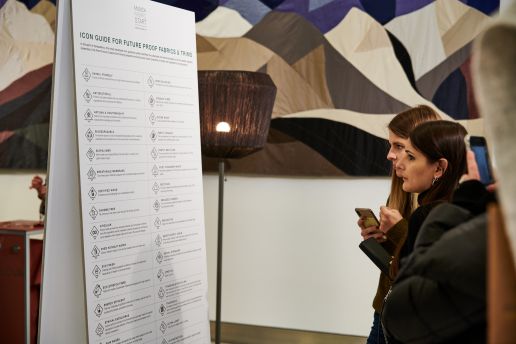
Each of the 44 icons indicates a specific characteristic related to the sustainability or performance of the respective product. With the help of these icons, manufacturers can highlight the added value of their products and at the same time make it easier for interested buyers to navigate through the increasingly vast range of products on offer.
With our new icon guidance system, we are highlighting the interface between contemporary aesthetics and invisible but important advanced product features. In doing so, we see MUNICH FABRIC START neither as a certification body nor an audit agency – for the given classification, we rely on the information and honesty of the respective supplier of the corresponding samples. We are thus taking an important step towards information, transparency and responsible action in the interest of the industry.
Jo Baumgartner, Fabrics & Trends MUNICH FABRIC START
In this sense, all specific properties such as eco-labels, social standards, performance indicators, limit values, chemical ingredients, etc. must be verified again with the respective provider.
Fashion Revolution at Munich Fabric Start
Since Fashion Revolution started, consumers, activists, brands and businesses have used their voices to demand change from the fashion industry to ensure fashion is made in a safe, clean and fair way. In our position as an industry platform we are able to convey the significance of this movement to our community of fashion professionals but also to our global network of manufacturers and suppliers operating in the textile and fashion industry.
At previous editions of our shows we reached out to our exhibitors to get involved in the viral movement #WHOMADEMYCLOTHES and send us photographs of their team responding to the question ‘Who Made My Fabrics, Trims, Prints and Denim?’. Displaying these in our busy trend and entrance areas helps send a powerful message to our audience and communities that these businesses are prepared and willing to support this Fashion Revolution movement leading to greater transparency and traceability throughout the supply chain, from fiber all the way to the end consumer.
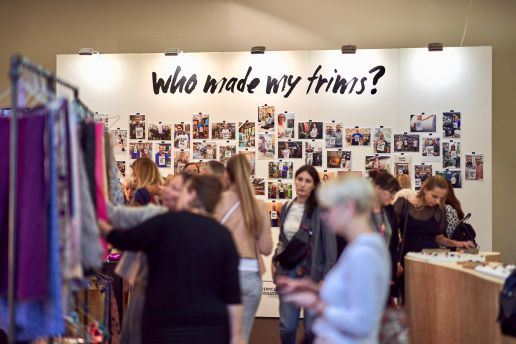
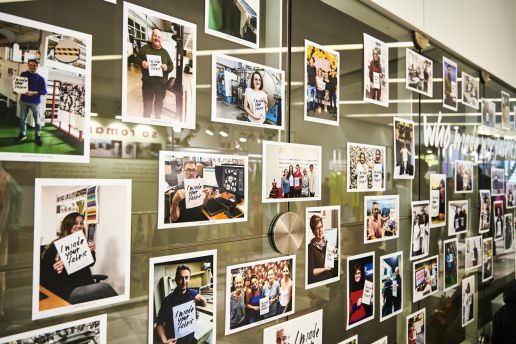
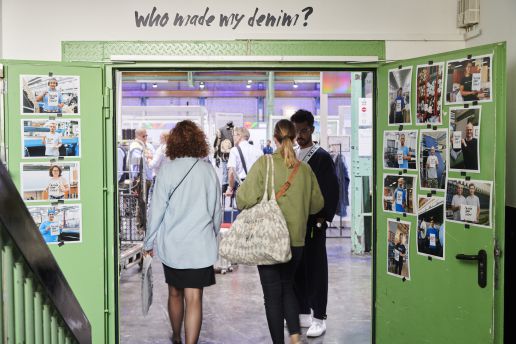
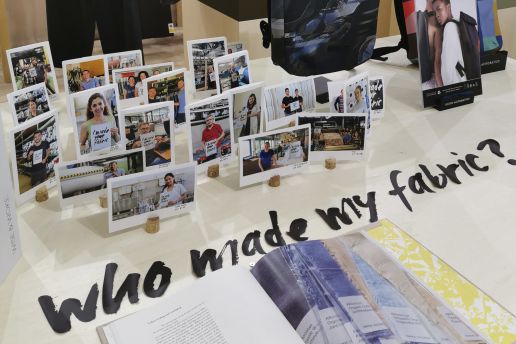
Sustainability in the textile and fashion industry is hugely multifaceted therefore the aim at our events is not only to provide a platform to promote new sustainable technology, material and fibre innovation but also to provide the necessary resources and educational tools to encourage and support the growth of sustainable processes and practices. Find out how we are creating future with KEYHOUSE, our hub for innovation at Munich Fabric Start.
The response at our shows has been overwhelmingly positive and exhibitor involvement has been a great success which we hope will continue to grow season after season. Once again, #WHOMADEMYCLOTHES will be featured in the trend areas and entrance ways at the upcoming MUNICH FABRIC START and BLUEZONE shows in September 2020. Read the latest news on our event planning during these times of Covid-19, here.
FASHION REVOLUTION WEEK
Fashion Revolution Week 2020 will shine a light on the steps needed to bring about revolutionary change at this pivotal point in the history of the fashion industry. Now, more than ever before, the industry is coming under increasing scrutiny and millions of people around the world are expected to participate in Fashion Revolution Week as it moves online. Find out how you can get involved now.


